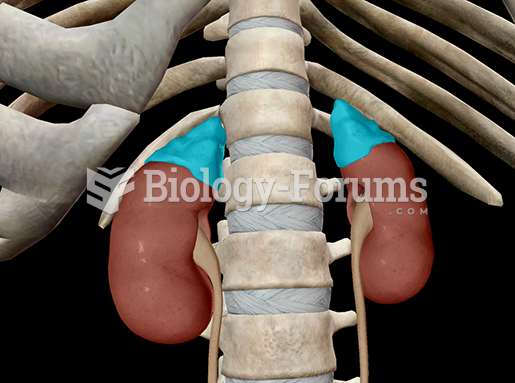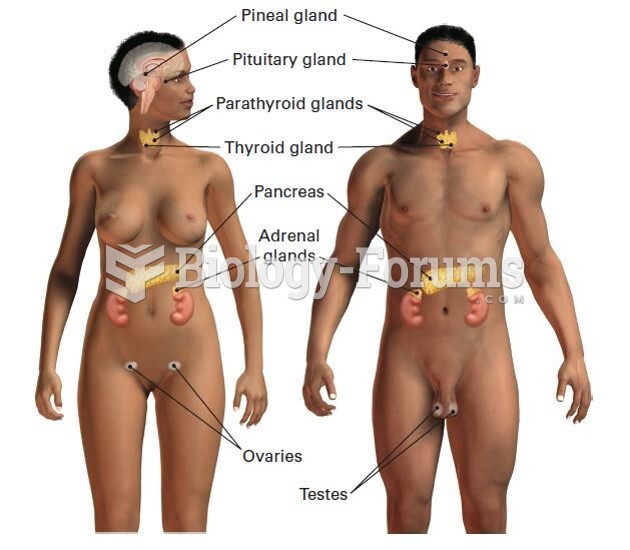|
|
|
The horizontal fraction bar was introduced by the Arabs.
The Centers for Disease Control and Prevention has released reports detailing the deaths of infants (younger than 1 year of age) who died after being given cold and cough medications. This underscores the importance of educating parents that children younger than 2 years of age should never be given over-the-counter cold and cough medications without consulting their physicians.
More than 150,000 Americans killed by cardiovascular disease are younger than the age of 65 years.
Of the estimated 2 million heroin users in the United States, 600,000–800,000 are considered hardcore addicts. Heroin addiction is considered to be one of the hardest addictions to recover from.
By definition, when a medication is administered intravenously, its bioavailability is 100%.







